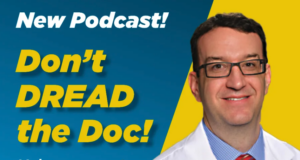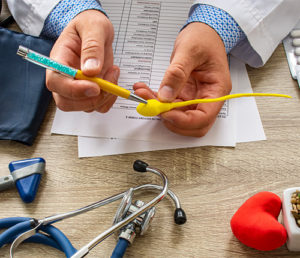By: David Bryan, M.D., Urology of St. Louis Medical Director
As the Medical Director for Urology of St. Louis, I have the privilege of leading our team of expertly trained physicians, and Advanced Practitioner Providers (APP’s) such as nurse practitioners, in providing top-level urologic care. Like all industries, ours is one that is continually evolving and changing and at times, the terminology and titles we use for our various providers might seem confusing. I wanted to take a moment to educate you about our Advanced Practice Providers (APPs) at Urology of St. Louis and the important role they play in administering care.
It’s possible you have been seen by an Advanced Practitioner Provider (APP) at our clinic or at another clinic outside USL. They’re physician assistants or nurse practitioners and may hold the credentials of FNP, DNP, PA, or NP.
Misunderstandings surrounding the capabilities of APPs in administering and treating patients are fueled by many misconceptions. I’m here to dispel three common myths patients might believe about being treated by a Physician’s Assistant or Nurse Practitioner. Let’s take a look at some of the most common myths and set the record straight.
1. They can’t prescribe medication.
APP’s execute numerous responsibilities regarding direct patient care. Closely mimicking the role of a medical doctor, they are authorized to:
- Prescribe Medication
- Diagnose
- Order Tests
- Interpret Results
2. They’re not as qualified.
While there is a difference between the education of a medical doctor and Nurse Practitioners/Physician Assistants, they do have extensive advanced education. A Physician Assistant receives three years of medical training post-grad in a medical school setting and often completes a residency. A Nurse Practitioner must be a registered nurse (RN), hold a Bachelor of Science in Nursing (B.S.N.), complete an NP-focused graduate master’s or doctoral nursing program, and pass a national N.P. board certification exam. While APP’s do not have a traditional medical school background, they are highly educated and trained. Furthermore, studies show that patients seen by an APP vs. a physician show no significant difference in outcomes or satisfaction.
3. There’s no advantage for the patient.
A frequently voiced concern within medical clinics pertains to the rationale for seeking care from a practitioner with a lower level of education or perceived skill when the option of being seen by a physician is available. However, one significant benefit of seeking care from an Advanced Practitioner Provider is that you can be seen quicker. Physicians often have to block out significant portions of their day for surgeries and can get called in on emergency situations unexpectedly. For this reason, it commonly takes a few months to be seen by a physician at any medical practice.
APPs oftentimes have more flexibility than physicians since they aren’t inside an operating room as frequently. They have more availability for quick appointments and can relay important follow-up information to the practicing physician as needed. At Urology of St. Louis in particular, we purposely leave some flexibility in our APP’s schedule to accommodate last-minute appointments for conditions such as kidney stones, hematuria, urinary retention, and testicular pain. As part of our full urologic medical team, our APP’s also have the knowledge and resources of all 28 of our practicing physicians available to them if needed.
APP’s are an integral part of USL’s overall medical practice and we all work together to provide our patients with top-notch care. Rest assured that no matter which provider you see at Urology of St. Louis, you will be in capable hands and will receive the highest quality, comprehensive care.





